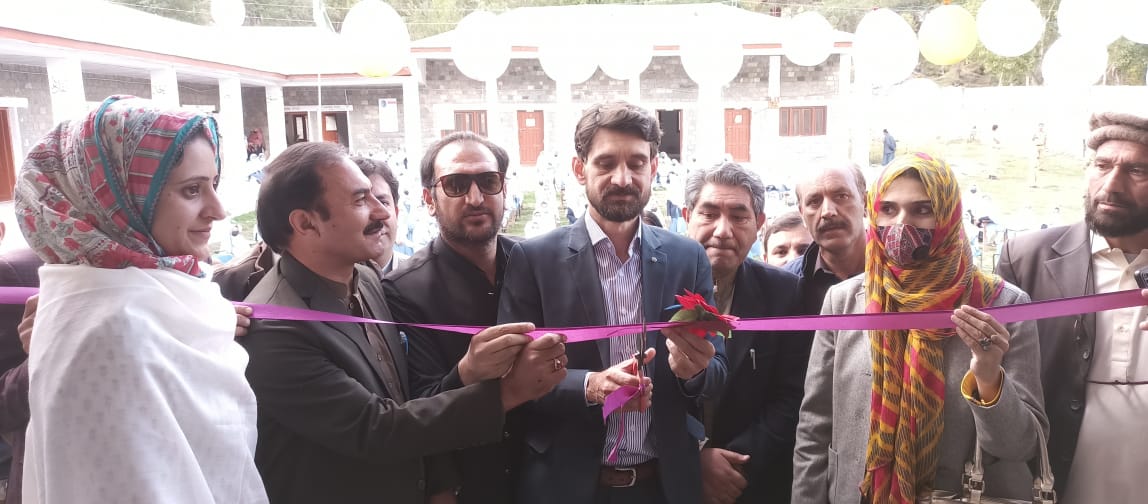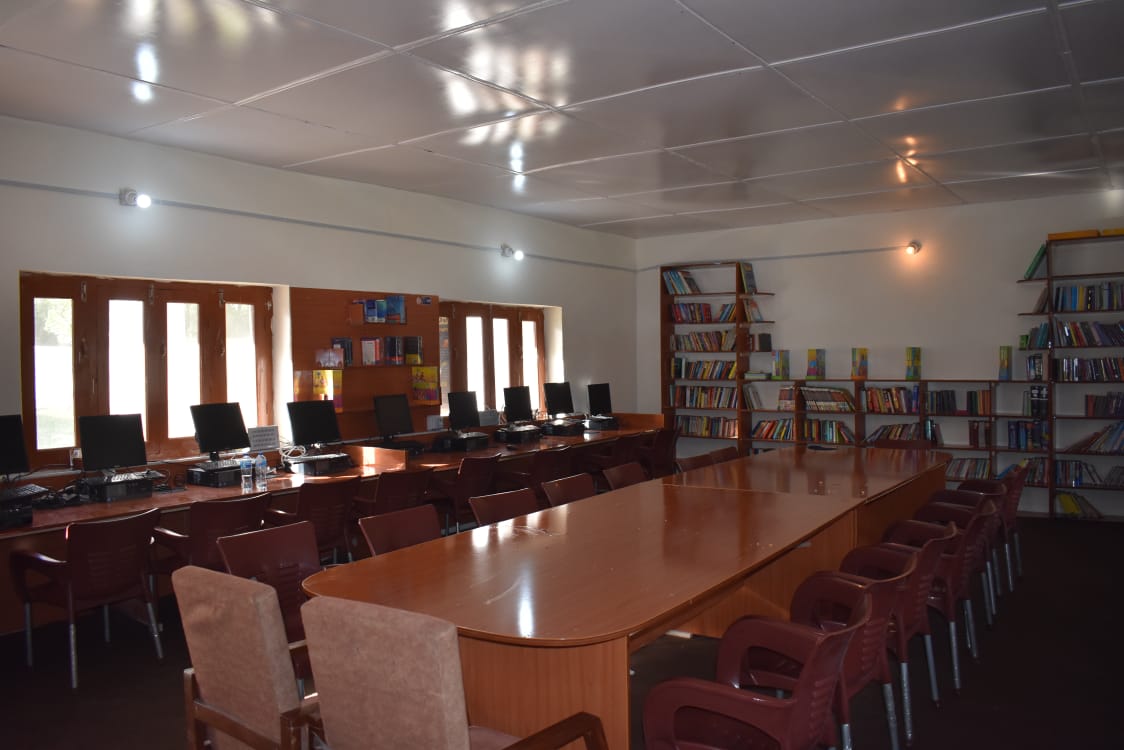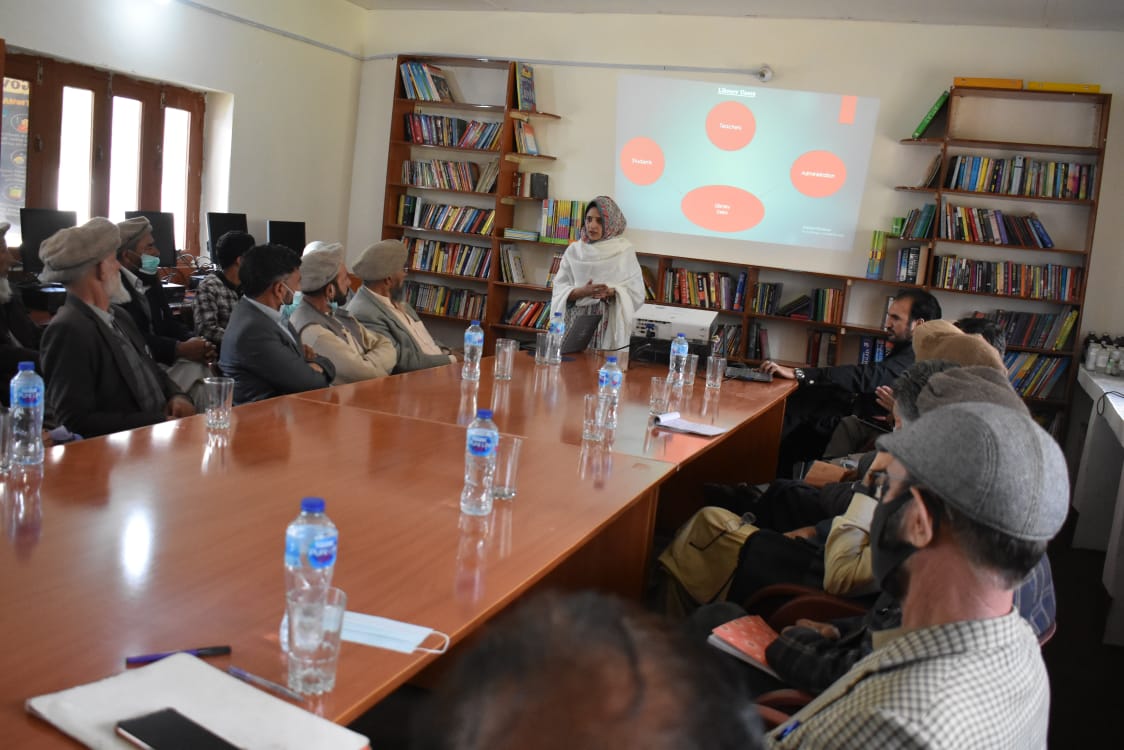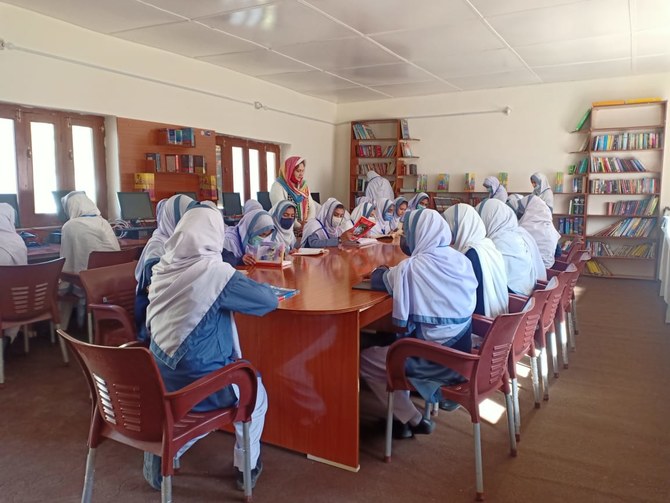ISLAMABAD: Halima Wazir said it was a “dream come true” when her brother, a philanthropist and medical professional based in the United States, told her he would donate over 1,000 books as well as computers to help set up a library at the girl’s school where she has taught for the last four years.
The 240 students at the Gorikot Girls Higher Secondary School will be the first in the remote, scenic Astore valley in Pakistan’s northern Gilgit-Baltistan region to benefit from a fully-stocked library and computers. And although the valley, which sprawls over 5,000 square kilometers, already has around 153 schools, many parents opt to send their children to schools in far-off districts due to a lack of facilities and infrastructure at local institutions.

Astore Deputy Commissioner Muhammad Tariq cuts the ribbon at the launch ceremony of a new library at the Gorikot Girls Higher Secondary School in Astore district of Gilgit-Baltistan, Pakistan, on October 14, 2021. (Photo courtesy: Shams-ur-Rehman)
“To set up a library in Gorikot Girls Higher Secondary School was my dream,” Wazir told Arab News this week. “When I realized that we are just teaching printed lines of syllabus while the world is moving fast with technology, then the idea [to set up a library] came to my mind. And finally, my brother fulfilled my dreams through financial assistance.”
The new library was inaugurated last week. For the facility, Khan donated 1,000 books that include volumes on history, science, general knowledge as well as fiction. He has also donated around a dozen computers and furniture and will pay the Internet bill as well as the salary of the librarian.
Khan told Arab News the library was a “small contribution” to the students of his home district, where he viewed every child as family.

A view of the newly-established library at the Gorikot Girls Higher Secondary School in Astore district of Gilgit-Baltistan, Pakistan, on October 16, 2021. (Photo courtesy: Halima Wazir)
Wazir said she hoped other affluent people from Astore and other parts of Gilgit-Baltistan would come forward to help the education sector of the region and help improve infrastructure and human resources.
“InshAllah (God willing), with the financial support of my brother, we are establishing a similar library in the boys’ high school of Gorikot valley also within months,” she said. “We have started the work.”
Jehanzeb Khan, a deputy director at the Gilgit-Baltistan education department, appreciated Dr. Khan and Wazir for taking a “great step.”

Halima Wazir delivers a presentation to guests at the newly-established library at the Gorikot Girls Higher Secondary School in Astore district of Gilgit-Baltistan, Pakistan, on October 14, 2021. (Photo courtesy: Halima Wazir)
“Now this school has become a role model in the region, and teachers of other schools, stakeholders and philanthropists are visiting it regularly,” he said, saying many locals had contacted the education department wanting to extend a helping hand to improve education in the area.
















